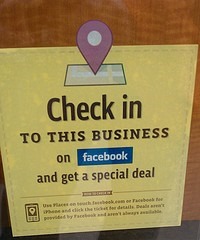Life as a startup entrepreneur is tough. Getting a business off the ground requires long hours, hard work and real dedication to the cause, but the payoffs can make it all worthwhile. But when the lines between work and life are blurred, how should entrepreneurs share their rollercoaster story over social media?
In this piece, we’re going to look at the traditional best practice versus a real ‘heart on the sleeve’ approach. What are the pros and cons of each and, more importantly, which is best for you?
The startup journey
It comes as no surprise to anyone who has or knows someone who has started a business that it takes a lot of long days, hard work and calculated risk taking to make a business work. Most entrepreneurs work around their day job, part-time work, or embrace the challenge of having zero income before the business takes off.
But today, when so much of our lives are shared on the social networks, what’s an entrepreneur to do? Should they share their tribulations in order to win affinity from their peers or do they portray the image of a well-oiled machine? How much of the inner-workings of their business should find their way to Facebook and to what extent should an entrepreneur distance themselves from their brand?
Here’s the typical approach:
Fake it ’til you make it
This phrase sums up most people’s approach when it comes to personal brand as a startup. This tactic essentially involves portraying your business as big and successfully as you possibly can, despite any struggles and setbacks you are experiencing. Of course, “fake it ’til you make it” isn’t just about your social media approach, it’s also an attitude towards entrepreneurship.
But to the outside world, the business must look robust, successful, with the capacity to grow and bring on new clients.
As a quote made famous by Michael Caine goes, “Be like a duck. Calm on the surface, but always paddling like the dickens underneath.”
But what of this “fake it ’til you make it” should be shared on one’s personal social media profiles?
Creating a serenity and a sense of confidence online may come from never mentioning business amongst friends, or only ever sharing major news or wins. Distancing one’s self from one’s working life on social media may forgo some business wins.
As JC Social Media founder Jodie Cook says in this Reader’s Digest article, what most people share on social media is their best bits or ‘edited showreel’. This is usually never more true of the entrepreneur. An entrepreneur would do well to keep their failures and low points to themselves; only sharing their wins and the opportunities their life choices have provided them.
People tend to want to be associated with success or the winning team. Creating an aura of success is likely to help an entrepreneur attract more business opportunities – no one wants to board a sinking ship.
There’s also the instant gratification element to sharing your highlights. When times get hard, a high-performing Facebook or Instagram post might be all you need as a pick-me-up. The “hater-shaming” posts always attract words of encouragement from one’s peers. However, if you find that social media becomes a crutch for your poor state of mind because you actually have reservations and insecurity about your business’s success, it could be time to focus on the actual business!
But aside from the personal boost social media engagement provides, are there benefits to the business directly? This totally depends upon the nature of the business and the products and services provided. As a consumer product with a target audience that mimics your personal networks, sharing news or business promotions may well yield sales or sales referrals.
However, for some entrepreneurs, sharing both their ups and downs on their personal social media profiles is just being honest.
Sharing the journey on social media
Robert Hallmark quit a well-paid job to pursue his startup dream – creating a first-class men’s fragrance brand offering more passion and creativity than the existing fragrance giants. Gruhme launched in 2013 and Rob’s journey has been typical of a startup entrepreneur.
“It really is as crazy as everyone makes out. One day you’re absolutely buzzing with excitement about a new deal and the next, you’re ready to throw in the towel because life gets too much,” Rob explains. But Rob is unafraid to share these highs and lows with his friends and family.
“I just don’t buy the “fake it ‘til you make it” thing – it’s just that – fake! I want people to buy into Gruhme because they buy into me and if I’m not the person they want to buy into, then fine. I don’t feel I can just lie to people about how well everything’s going when I feel terrible and life really has me on the ropes.”
But does Rob feel like he’s just able to sell products out of sympathy?
“I like to think not. I don’t want people to do that; I want people to buy the products on merit. I only share life’s ups and downs to give people an insight into me and my journey. If that compels people to buy Gruhme, then that’s fantastic, but I’m under no illusion – I know I can’t keep peddling bottles of fragrance to my friends and the brand has to stand up on its own.”
To date, Rob’s moment in the limelight came after a grilling in the Dragons’ Den. Rob pitch to the dragons in an episode that aired on the 26th of February 2017 before getting absolutely grilled by the no-holds-barred panel. Despite his less than favourable outcome, Rob and Gruhme received huge praise and support across the social networks, which is a testimony to Rob’s reputation as an entrepreneur.

Rob goes on to say, “the other benefit of a more honest and open approach (though be careful too with over doing this) is mistakes will happen and you’re more likely to have public support for them, if you sell an image of flawless perfection of your business it may work against you if you do ‘get it wrong’ publicly (just as we’ve seen recently with BrewDog v WolfBar). You can also grow at a more realistic rate if you’re not faking it because people can see it’s a real owner/managed business, so won’t be so disappointed by the inevitably more gradual growth and development compared to your faking peers.”
Personal brand
Another key element in deciding the approach to what you share on social media is your personal brand. Sometimes the personal brand of an entrepreneur is inherently linked to their business. In other cases, being less associated with the business can give it a sense of being a bigger beast than it is.
Most entrepreneurs adopt a personal brand and style that follows them around when they’re networking, pitching or presenting. The same goes for social media. Being aware of the personal brand you portray and how closely linked you are to your business is important. Being overly connected to a business may mean it’s difficult to dissociate from it later in life or it could forever be pigeonholed as a ‘one-man-band’ business.
However, there are exceptions where being and living the brand of the business works. If you’re the driving force behind the brand and people buy into you and your ethos before your business, being the brand can be very effective.
The bottom line
There is certainly a spectrum when it comes to how much you should share about your business on social media and how your business successes are portrayed. Much of this comes down to the specifics of the brand and the value of your personal networks on social media. There also has to be a degree of personal preference there as Rob explains,
“Choose your own path, I guess, and choose it consistently, but I’m minded to share that faking it can only last so long and go so far, and if the truth catches up the collapse might be unstoppable. People who buy into fast growth are rarely loyal when the growth slows.”
So which do you think works? The “fake it ’til you make it” attitude or keeping it real? Leave your comments below!
Digital & Social Articles on Business 2 Community(69)







